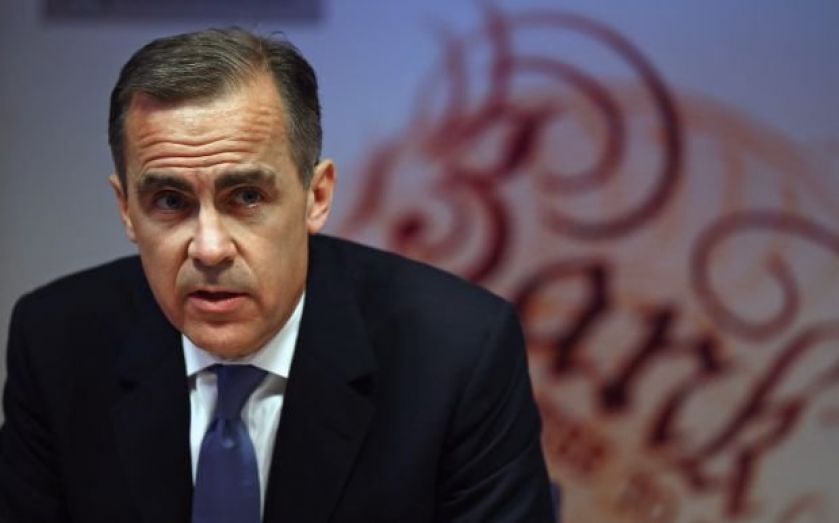In graphs: UK is “halfway to recovery” says Carney

Britain's economy is "more than halfway towards the finish line" Bank of England governor Mark Carney has said, with the UK economy expected to grow by 3.5 per cent this year.
Perhaps more poignantly for those looking for hints as to an interest rate rise, Carney also indicated he wouldn't necessarily wait until wages caught up with the rising cost of living before considering a hike.
The governor was bullish in an interview with The Sunday Times:
Wherever the finish line was in the depths of the crisis, we are much more than halfway towards that finish line now.
The expansion is proceeding, momentum is more assured; the very fact we have had consistent quarters of growth in line with, or slightly better than, our forecasts shows that.
The economy has indeed been growing nicely, with the most recent GDP figures showing an (annualised) growth spurt of 3.2 per cent (0.8 per cent for the quarter).
As well as booming GDP (the fastest of the G7 nations) the UK is also expecting unemployment to drop below six per cent by the end of the year.
While employment and inflation are massively important to the Bank and any interest rate decision, the key statistic for politicians going into next years election is likely to be real wages.
The Bank cut its wage growth forecast from 2.5 per cent, which would mean wage growth above inflation, to 1.25 per cent, effectively meaning a drop in real wages.
Inflation is expected to be calculated at 1.9 per cent for 2014, below the Bank's two per cent target but above wage growth.
Carney told The Sunday Times that strong wage growth was important, but that wages catching up with the cost of living was a threshold for which he would not wait.
We have to have the confidence that prospective real wages are going to be growing sustainably [before raising interest rates] – we don't have to wait for the fact of that turn to raise them.
A drop in real wages this year would be the sixth straight year that wage increases have been unable to keep pace with inflation. The likely date for a raising of interest rates is considered to be February 2015, by which time rates will have been at 0.5 per cent for almost six years.
Not all sectors are recovering equally either, although the general trend seems to be in the right direction. The services sector is the only area to be performing above the curve and remains a huge driver of the recovery. Recent Markit purchasing managers' index data has confirmed this.
Despite the services-led recovery and the rising cost of living, the latest figures give a major boost to the government. George Osborne can claim to be at the helm of an economy growing faster than its developed neighbours and allies – a major advantage at the polls.
But the Eurozone, suffering from disinflation and low growth, is also the UK's biggest trading partner, and the UK economy is still affected by events on the continent, especially as the pound strengthens against the Euro.
All eyes are now on the minutes of the Bank's last monetary policy committee meeting, which will be released this Thursday. It is expected that the previous meeting saw the first votes for a rate rise from members of the nine-person panel.